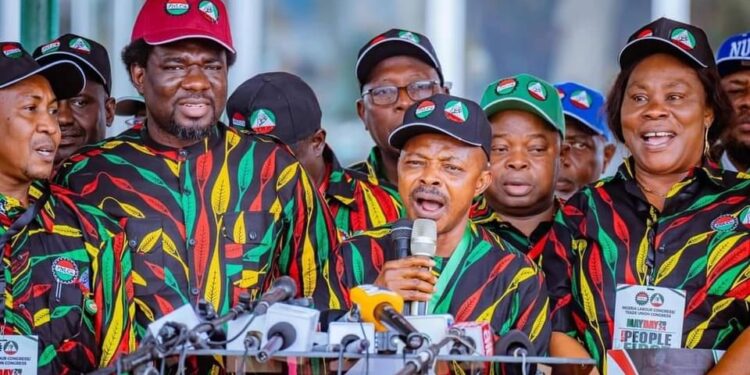Organized Labour, represented by the Nigeria Labour Congress (NLC) and the Trade Union Congress (TUC), has vehemently opposed the Southern Governors’ Forum’s proposal to decentralize minimum wage negotiations to individual state governments. The NLC criticized the idea as “unfriendly and anti-worker,” arguing that allowing states to determine their own minimum wages would severely impact workers’ welfare.
The Southern Governors’ Forum, following a meeting in Abeokuta, had advocated for states to independently negotiate minimum wages based on the cost of living. However, the NLC’s National Treasurer, Akeem Ambali, emphasized in an interview with Saturday PUNCH that governors lack the authority to negotiate minimum wages independently. He stressed that minimum wage issues are governed by national legislation and urged governors to focus instead on implementing the approved national minimum wage.
Ambali highlighted previous instances where some states initially resisted paying the current minimum wage until compelled by labour actions, underscoring the necessity for consistent and fair wages across the country. He also called for transparency regarding governors’ earnings and urged President Bola Tinubu to endorse the proposed minimum wage bill for submission to the National Assembly after due consultation with Organized Labour.
In a similar vein, the Trade Union Congress (TUC) Deputy President, Dr. Tommy Etim, asserted that governors do not have the authority to lower minimum wage rates and stressed that such decisions fall within the exclusive legislative purview of the federal government. Etim urged workers to remain steadfast, confident that the federal government would uphold their interests through appropriate legislative processes.
Economist and development expert Aliyu Ilias echoed concerns about the governors’ stance, urging them to prioritize improved wage conditions despite financial challenges. He called for clarity on the role of the Federation Account Allocation Committee in funding wage increases and advocated for enhanced collaboration between the government and labour unions to resolve existing disputes amicably.
The ongoing debate underscores the complex interplay between state autonomy and national standards in determining minimum wages in Nigeria, reflecting broader challenges in balancing fiscal responsibilities with workers’ rights and economic realities.
























